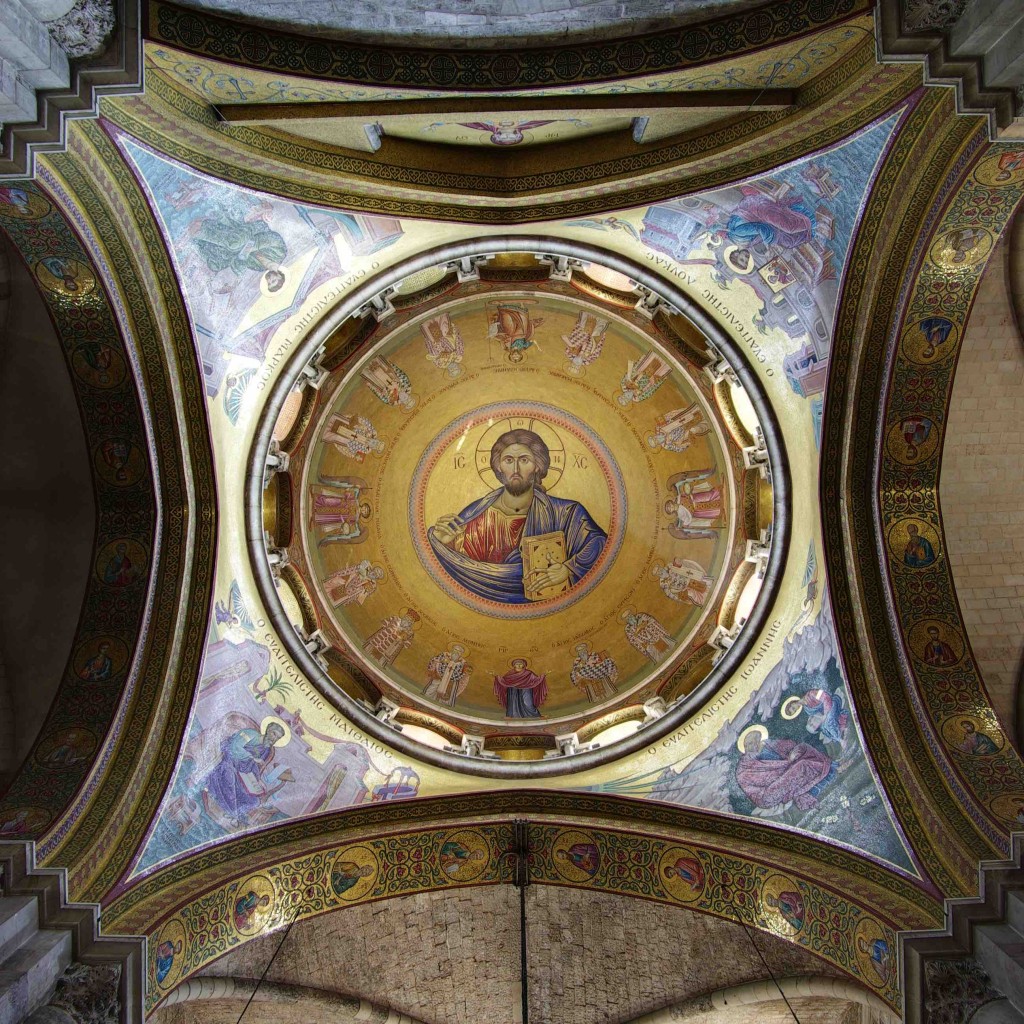Eastern Christians share many cultural traditions but not the same religious traditions, Christianity divided itself in the East during its early centuries both within and outside of the Roman Empire in disputes about Christology and fundamental theology, as well as national divisions (Roman, Persian, etc.). (Images of the Holy Sepulchre, detail of the dome over the Katholikon, Jerusalem by Berthold Werner).

Christianity spread throughout Asia, Europe, and Africa. The Eastern Christian Churches are characterized by a rich heritage with Apostolic origin, and are treasured by the universal Church, for the East was the home of Jesus Christ our Redeemer!
Jerusalem is the birthplace to all of Christianity throughout the world. The Levant, the eastern shores of the Mediterranean Sea, served as the cradle of Christianity. Antioch, Syria became an early center for Christianity, especially following the destruction of Jerusalem in 70 AD. Indeed, followers of Christ were first called Christians in Antioch (Acts 11:26). They also became known as Nazarenes (Acts 24:5), particularly in the East. St. Mark the Evangelist founded the Church of Alexandria, Egypt. Philip the Deacon introduced Christianity to a minister of Candace, Queen of the Ethiopians, on the road from Jerusalem to Gaza in Acts 8:27.
One of the earliest centers of Christianity was Edessa in the Kingdom of Osroene, located in Northern Syria and Mesopotamia across the Euphrates River. Eusebius of Caesarea in his Ecclesiastical History reported that King Abgar of Edessa was afflicted with illness and contacted Jesus in the hope of a cure. Upon his healing by St. Jude Thaddeus, King Abgar converted to Christianity.
Edessa became home to such writers as St. Ephrem of Syria (306-373 AD), a Father and Doctor of the Church. St. Ephrem wrote his beautiful hymns and religious poetry in Syriac, a dialect of the Semitic language of Aramaic, the language of Jesus. Syriac became the biblical and liturgical language of early Christian Churches in the East. The theology of Eastern Churches often developed independently, outside the sway of Roman and Byzantine thought. Syriac Christianity would expand throughout Asia, extending to Chaldea and Persia along the Silk Road all the way to India and the Far East, reaching China, Tibet, and Mongolia. The first nation to adopt Christianity as its state religion was Armenia under King Tiridates III in 301.
Eastern Christian Churches allow clerical marriage, for they accept the gift of human sexuality given by God, who said, “It is not good for the man to be alone”(Genesis 2:18). Those Eastern Churches that are in communion with Rome are known as the Eastern Catholic Churches. 8-16



